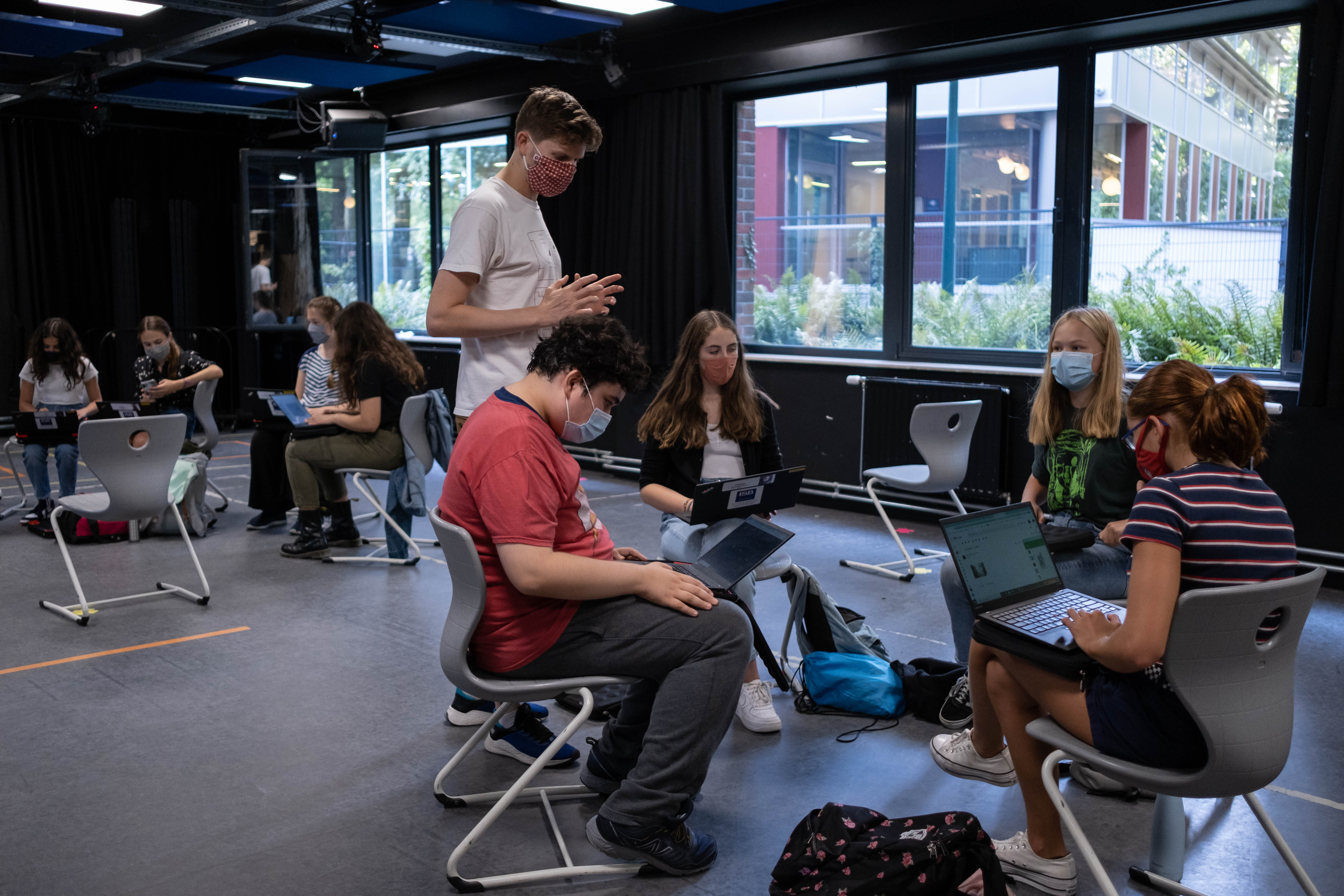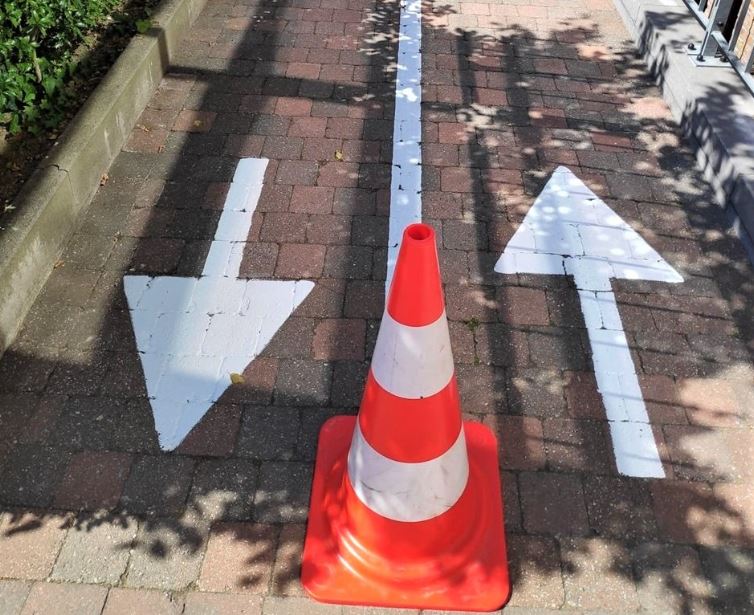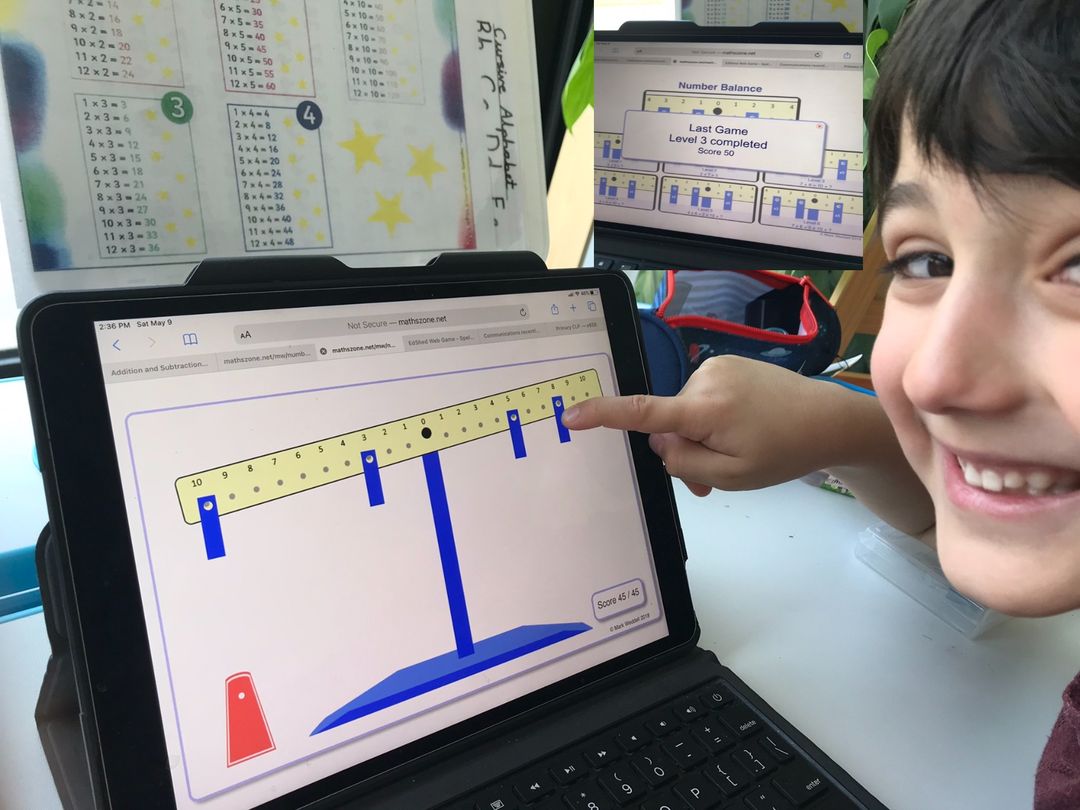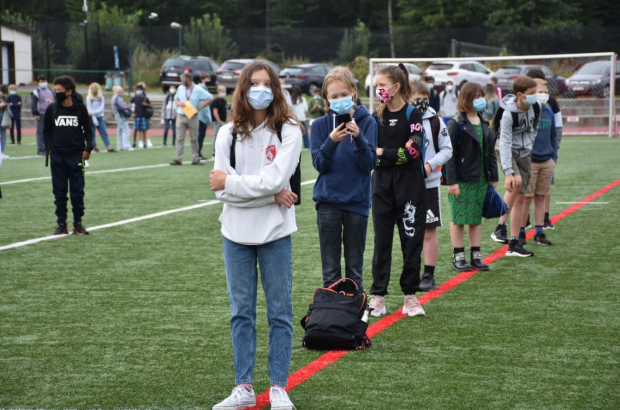- Daily & Weekly newsletters
- Buy & download The Bulletin
- Comment on our articles
Covid in the classroom: How have international schools fared?
Listen to this article:
“I don’t think a day goes by when I don’t write an email that uses Covid-19 somewhere in the heading,” says David Willows, director of advancement at the International School of Brussels (ISB). The school in Watermael-Boitsfort was the first in Belgium to close due to a case of the virus in the community, back when there wasn’t much guidance on how to address the situation. He praises the “much clearer advice now that is coming from the Belgian authorities”.
Pupils at ISB returned to school in late August with upper students and staff wearing masks, and seat zoning on buses to quickly identify those who may have been in close proximity to an infected classmate if necessary. Willows says ISB has also had to adapt to the reality of being an international school during a global crisis. “We had 300 new students joining us this year and about 100 of those were not able to start school immediately because of quarantine restrictions,” he says. “So we had to ship them their technology, their laptops, and get them set up remotely.”
Being an international school has also proved an advantage, of course. “There’s a huge network of international school leaders who are connecting almost on a daily basis and sharing ideas,” he says. And communication has been one of the most important factors in allaying fears. “We were aware there was some degree of anxiety on the part of parents, and in some cases even our own teachers, so we’ve worked hard to provide them with a lot of detailed answers to their questions, with reassurances that safety provisions are in place.

“The school feels in a very positive place, enrolment is high, we are completely full. I would say that we’re in as good a place as we probably could be, given everything that is happening around us.”
Embracing the outdoors
Another school has found that its environment is ready-made for restrictions. “We have learned that the Montessori classroom and school setup are very suitable for creating classroom bubbles,” says Annie Hoekstra-de Roos of the International Montessori School, which has six sites in Brussels and the surrounding suburbs. Every classroom has its own bathroom and kitchen facilities and can function independently from the rest of the school. As there is no hallway and canteen traffic, students from different classrooms do not need to mix. “This ‘ingredient’ of the learning environment was already there, but it now allows us to offer full-time attendance to all children and students,” she says.

During the lockdown, an online learning programme, the International Montessori School of the Air, was introduced, with Zoom sessions and class materials incorporated. When pupils returned to school, adaptations were made to the entrance and exit routes and to start and end times, with 1.5m markers to ensure parents keep their distance from one another. This allows families to pick up their children safely, without needing to be around a larger group.
“Adapted lunch settings, fresh air and regular activities outside all further contribute to a safe environment. Students work, sing and eat outside, weather permitting,” says Hoekstra-de Roos. Parents also had ‘walk and talk’ meetings with teachers at the start of the school year. “Children are resilient by nature. They live in the here and now. Adults can protect that state of mind by being realistic according to the local situation we live in and filtering the information for our children that we as adults are bombarded with.”
Positives from a crisis
The British School of Brussels in Tervuren was also quick to spring into action at the start of the pandemic. “From the beginning of the Covid-19 crisis, a core crisis team was formed, meeting regularly and reviewing various scenarios required to be put in place,” says Melanie Warnes, school principal.

Since returning after lockdown, the school has been quick to ensure parents are kept informed about changes, and established a dedicated email inbox for staff and parents to share their concerns or raise questions. “Because of this, there is a lot less concern than you might imagine,” Warnes says. And as a fee-paying school, there are particular advantages. “It helps that we have a very big campus including plenty of outdoor learning areas. We can adapt quickly and easily.
“Naturally, the website had to be updated too, and most importantly to inform any new families considering a move what we had done, and to reassure them. Within six weeks of being locked down, BSB had developed a virtual tour of the school for potential families, which proved to be hugely successful.”
In addition, staff shared tips with colleagues via Twitter and in virtual meetings. Teachers have even noted that some positives have come from the new way of working: making the team stronger through communication and compromise, and improving their IT skills significantly.
All schools have also noted the resiliency and adaptability of the children. “Our students have been fabulous. They’ve embraced the new ways of working and worked enthusiastically – they’ve done their best and we could not ask for more,” says Warnes.
What’s been your experience of education during and since the lockdown? How have you or your children adapted to distance learning and the measures to keep pupils in school safely? Share your experiences below or email us at editorial@ackroyd.be
About the author
Karen McHugh is a regular contributor to The Bulletin, as well as to the Irish Times and the Irish Independent in her home country. She also provides news articles in English for Brussels Invest and Export’s website. A keen musician in her spare time, Karen writes mostly on culture, music, public transport and life in Belgium.
This article is part of The Bulletin's digital magazine














